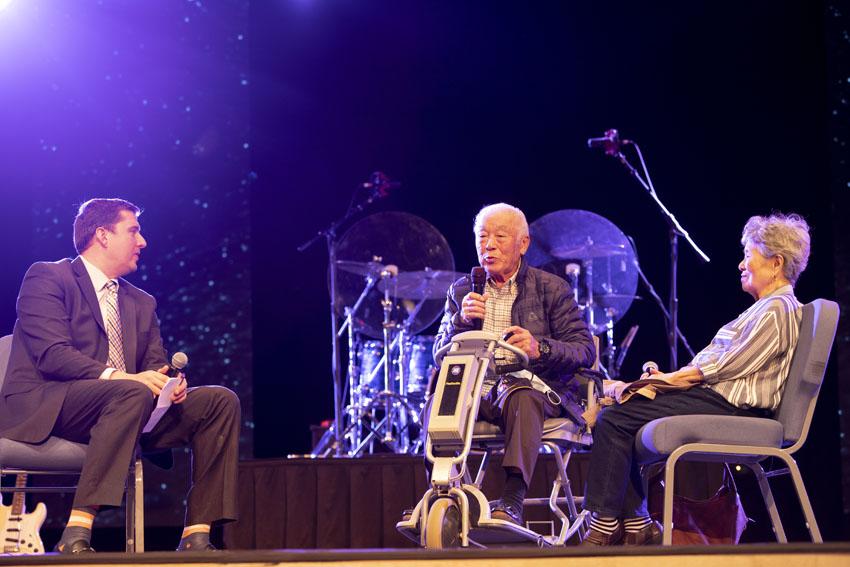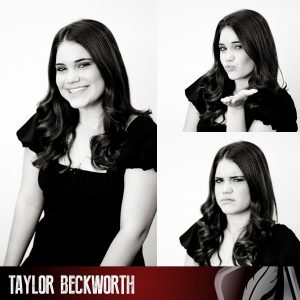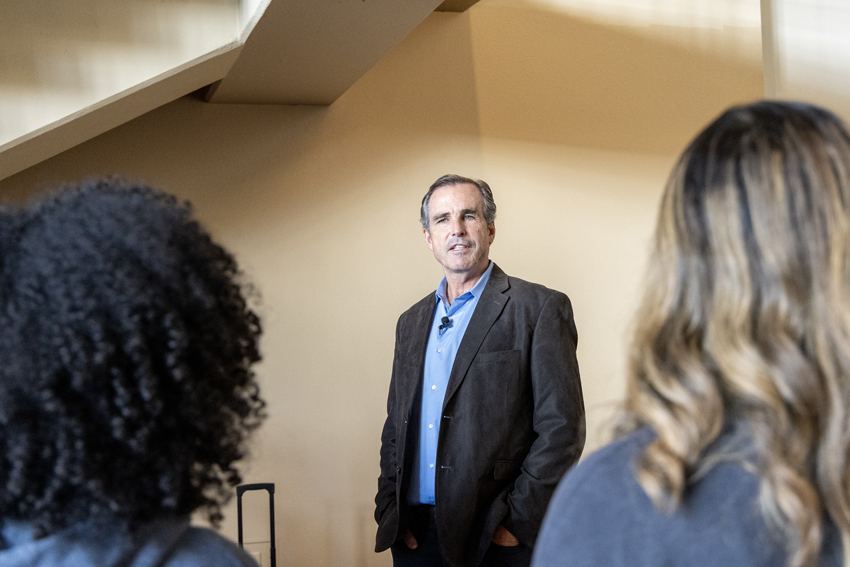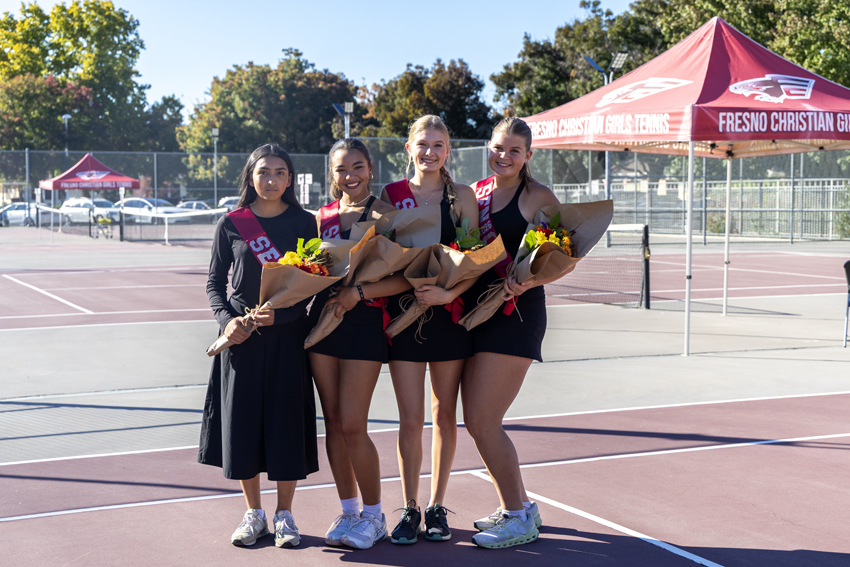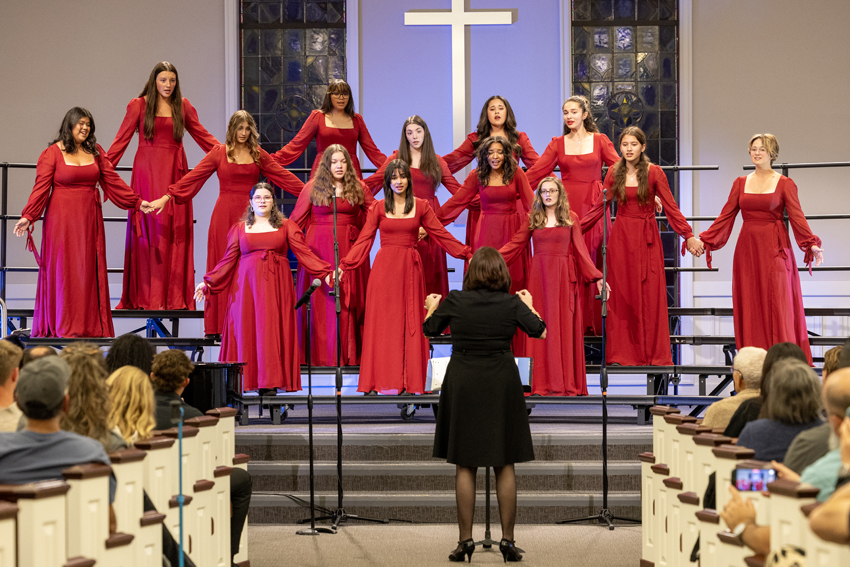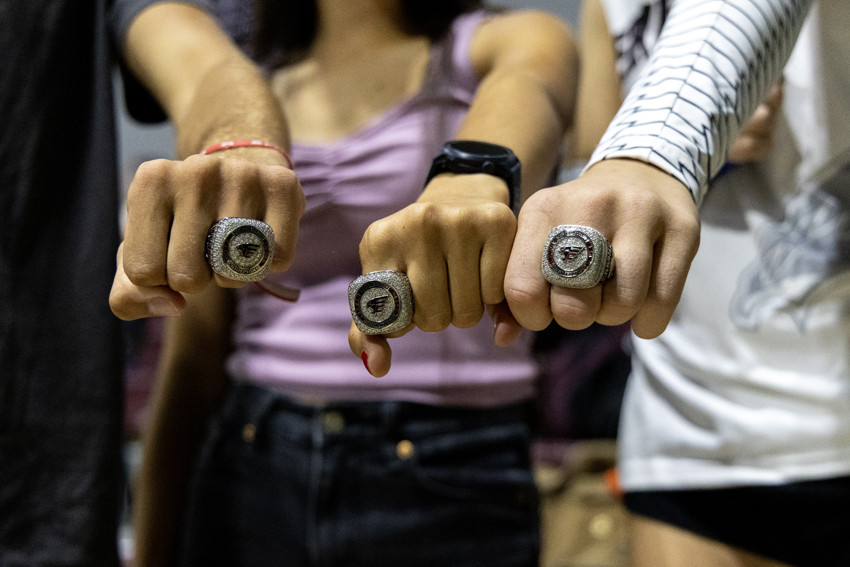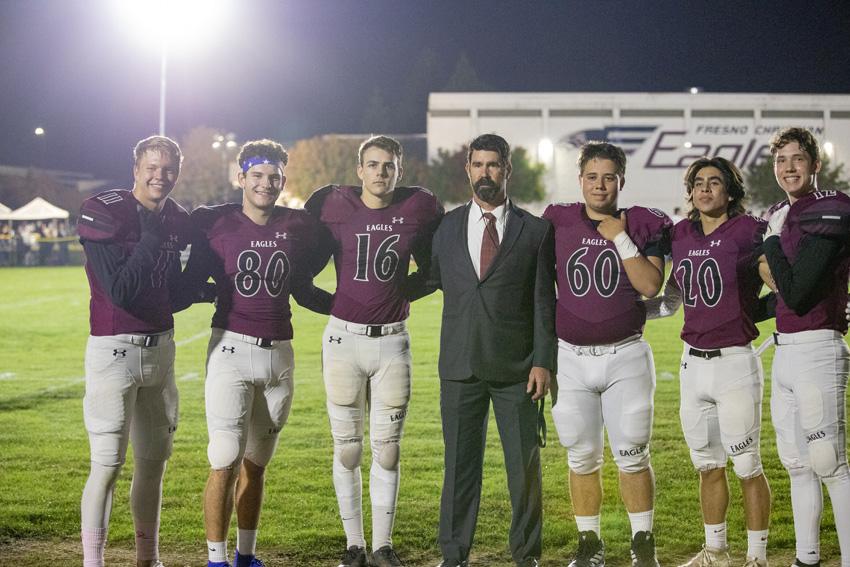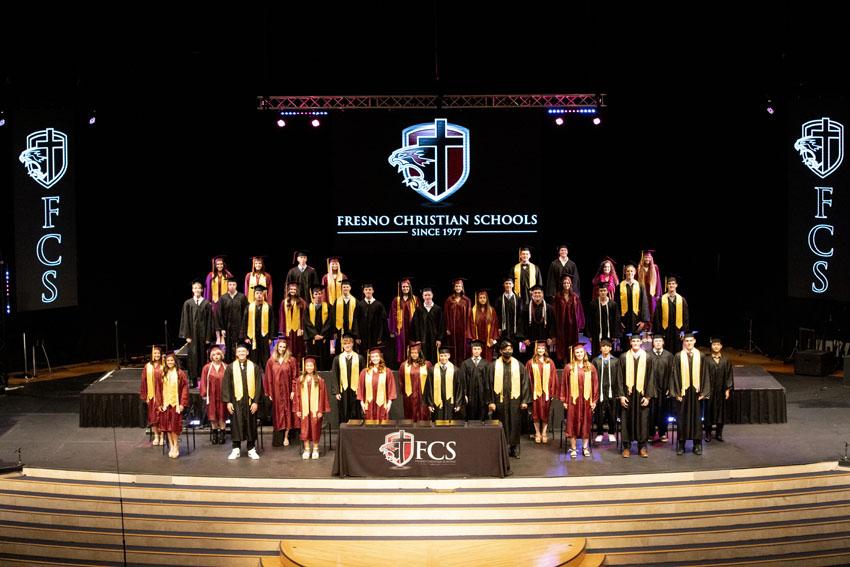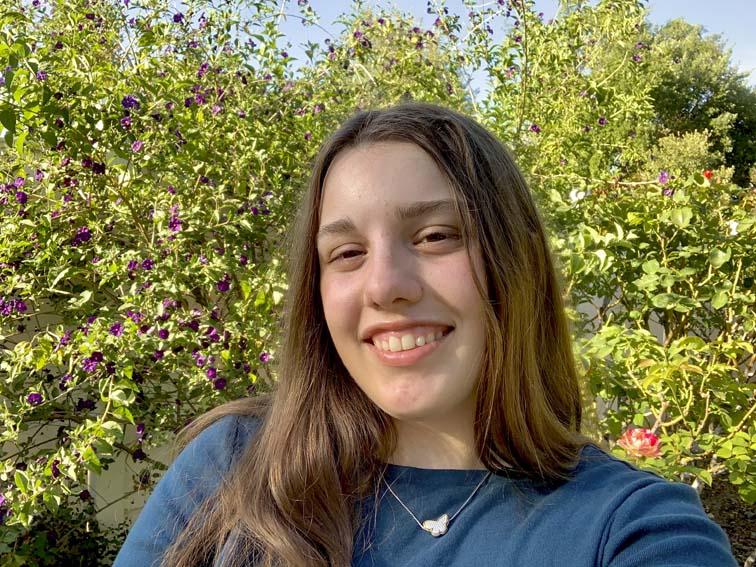Japanese-American Robert Uyesaka shares stories of his past including his internment and service with the 442nd Regimental combat team during World War 11, for a special chapel, Feb 25. Born in California, but raised in Arizona’s Salt River Valley, Uyesaka was born to immigrant parents from Japan.
However, as a result of ethnicity, these Japanese Americans were prevented from owning land. Uyesaka and his three older brothers get up working his family’s 80-acre fruit farm in mid winter, having no idea their lives would forever change by the events of Dec. 7, 1941.

Later on February 19, 1942, President Franklin D. Roosevelt issued Executive Order 9066 in response to the Japanese attack on Pearl Harbor. Sad news came upon the Uyesaka family that his father would be taken to one of the separated camps for the first generation Japanese Americans.
This would be the last time they were together as a family of six. Within a couple months, the remaining family was forced to a desert the farm and would be interned at Conservation Corps camp in Mayer, AZ.
Isolated in the dry desert terrain, the internment camp offered little to no comforts. There was no need for barbed wire as escape only lead to your desert demise. Dust was so horrible it covered their food, their clothes with no ability to escape the constant film of dirt. Uyesaka’s own father would later be hospitalized due to extreme asthma from the dust.
Yet it felt like an adventure for Uyesaka. He shared that, because at a young age (16), he had others to play with and the feeling of loss was something the older people dealt with.
Uyesaka was later moved to a much bigger camp in Poston, Arizona, with other Japanese Americans that were forced out of California. Uyesaka met many different people and participated in sports programs such as baseball and softball. Somedays were worse than others, but baseball brought hope as children were allowed to participate in sports.
“Without the sports and everything,” Uyesaka said. “Life in camp would have been real dull.”
Making a baseball field in empty areas of the camp, equipment came from people who donated sports equipment. Kerry Yo Nakagawa of the Nisei Baseball Research published the book Through the Diamond: 100 years of Japanese American Baseball and shared many experiences which mirrored and outlined some of what the Uyesaka’s went through.
Nakagawa documents and discusses the hardship of being a teenage boy behind barbed wire and how baseball saved them.
On Uyesaka’s 17th birthday, he was able to leave camp joining his older brother in Colorado. By the age of 18, he was signed up for the Selective Service Act (the draft). Later he was called up and asked to serve in the same United States military that removed his family from their home.
Serving in the 442nd Infantry Regiment with other second generation Japanese American’s, Uyesaka took part in the infamous rescue of the lost battalion. While he was training there, Uyesaka encountered a lot of problems. It was very difficult when other servicemen treated them with hostility and even beat up their guards. When commanding officers heard about the situation, he found himself once again separated out, but this time as a need for protection. More information about Uyesaka’s life in the military, can be found at Hometown Heroes.

Uyesaka’s dad had always told him to never forsake his country, so he did what he was called to do and chose to not be bitter. Sometimes that choice was made daily to not allow resentment or bitterness to shape his life, instead he forgave.
Heading back to the U.S. after his duty, Uyesaka married Jo, the young girl he met while interned who became the love of his life. Together they raise four children and built a life they loved.
Jo shares her own experience of living in an internment camp as a twelve year old. Separated from her father for three and a half years, Jo was kept in horse stables forced to sleep on the floor with only a few belongings she had moments to grab. Later she was sent to Poston, Arizona, where her life was forever changed when she learned about Christ.
Paul Loeffler, local radio show host, interviews Uyesaka about looking back in his past and what he wished was different.
“You have to look forward and you can’t change the past,” Uyesaka said. “If I would have stayed in Arizona, I wouldn’t have met my wife.”
Their story shows parents and students about forgiveness and not growing angry especially with much loss and change in 2020-21. The hardship of what they went through helps put into perspective that sometimes things can be much worse and that everything happens for a reason.
For more of the Uyesaka’s story, watch to Paul Loefller’s interview and chapel recording. Thank you to Fresno Christian Schools for the recording.
For other story of heroic veteran’s visits, Paul Loeffler interviews WWII vet during Veterans Day chapel, Nov. 14.
To read more from The Feather head to the latest news.


